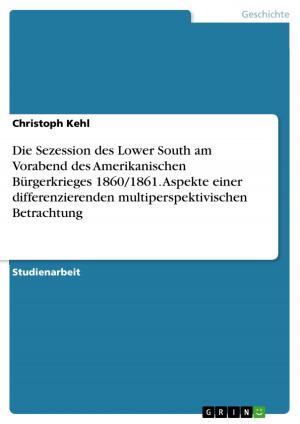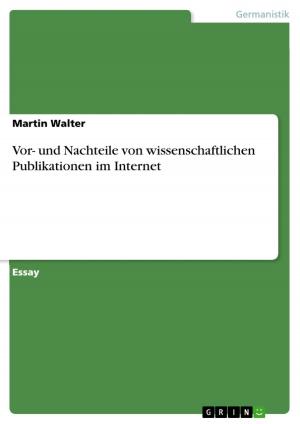Digital Media and Culture. Counter Stereotypes about Foreign Cultures by Using Weblogs in the EFLC
Nonfiction, Reference & Language, Study Aids, ESL, Foreign Languages| Author: | Olesja Yaniv | ISBN: | 9783668283442 |
| Publisher: | GRIN Verlag | Publication: | August 25, 2016 |
| Imprint: | GRIN Verlag | Language: | English |
| Author: | Olesja Yaniv |
| ISBN: | 9783668283442 |
| Publisher: | GRIN Verlag |
| Publication: | August 25, 2016 |
| Imprint: | GRIN Verlag |
| Language: | English |
Seminar paper from the year 2016 in the subject English - Pedagogy, Didactics, Literature Studies, grade: 1,3, Justus-Liebig-University Giessen (Anglistik), course: Digital Media in EFLC, language: English, abstract: New media - especially the personal computer - play a significant part in people´s private area as well as in the occupational area. Thus, there is talk about transition of industrial society into an information society. Such transition has been fulfilled since the end of the 1960s and includes a digitalized and interconnected world for the greatest extend. Those changes affect the whole everyday reality; an increasingly number of the population spend their time in front of monitors inside a virtual reality. The internet and mobile devices facilitate communication with both, familiar and unknown people all over the world. For the young generation - the so called 'digital natives' - the constantly networking and opportunity of gaining knowledge easily became obviously. Furthermore, the kind of learning has changed as well. Due to the digitalized world knowledge is not only represented differently but also accessible at any place and is not bound to a personal producer or mediator. The digital learners should not 'consume' rehashed knowledge anymore but, need to be able to have the ability to use available knowledge and information, screen those usefully and thus, reach efficient learning outcomes. Hence, media literacy becomes a key qualification to participate in the information society. In the course of lifelong learning and concomitant increasingly compulsion to flexibility of learning, weblogs as a form of e-learning can represent an efficient media to realize a new culture of teaching and learning since contents are spread independently from place and time and are made available for the recipients. Besides, the access to blogs created by people and companies all over the world enables an absorption and participation in foreign cultures, values and perceptions by the digital learners. Blogs make our society more interconnected and self-aware. By considering the aspects of education and intercultural learning written in the scholastic standards, it is necessary to examine blogs concerning their features and potentials, possible applications in the English foreign language classroom and finally, to provide theory into a practical and realistic teaching unit of a 11th grade at a German advanced level of a high school.
Seminar paper from the year 2016 in the subject English - Pedagogy, Didactics, Literature Studies, grade: 1,3, Justus-Liebig-University Giessen (Anglistik), course: Digital Media in EFLC, language: English, abstract: New media - especially the personal computer - play a significant part in people´s private area as well as in the occupational area. Thus, there is talk about transition of industrial society into an information society. Such transition has been fulfilled since the end of the 1960s and includes a digitalized and interconnected world for the greatest extend. Those changes affect the whole everyday reality; an increasingly number of the population spend their time in front of monitors inside a virtual reality. The internet and mobile devices facilitate communication with both, familiar and unknown people all over the world. For the young generation - the so called 'digital natives' - the constantly networking and opportunity of gaining knowledge easily became obviously. Furthermore, the kind of learning has changed as well. Due to the digitalized world knowledge is not only represented differently but also accessible at any place and is not bound to a personal producer or mediator. The digital learners should not 'consume' rehashed knowledge anymore but, need to be able to have the ability to use available knowledge and information, screen those usefully and thus, reach efficient learning outcomes. Hence, media literacy becomes a key qualification to participate in the information society. In the course of lifelong learning and concomitant increasingly compulsion to flexibility of learning, weblogs as a form of e-learning can represent an efficient media to realize a new culture of teaching and learning since contents are spread independently from place and time and are made available for the recipients. Besides, the access to blogs created by people and companies all over the world enables an absorption and participation in foreign cultures, values and perceptions by the digital learners. Blogs make our society more interconnected and self-aware. By considering the aspects of education and intercultural learning written in the scholastic standards, it is necessary to examine blogs concerning their features and potentials, possible applications in the English foreign language classroom and finally, to provide theory into a practical and realistic teaching unit of a 11th grade at a German advanced level of a high school.















